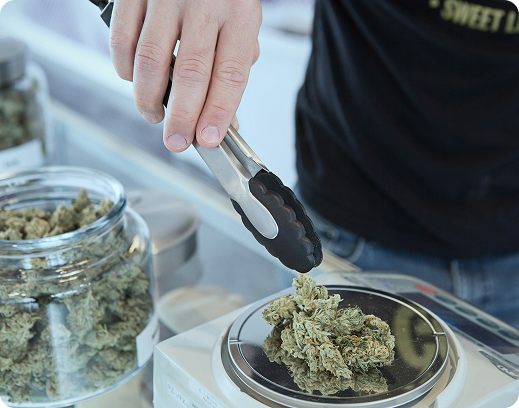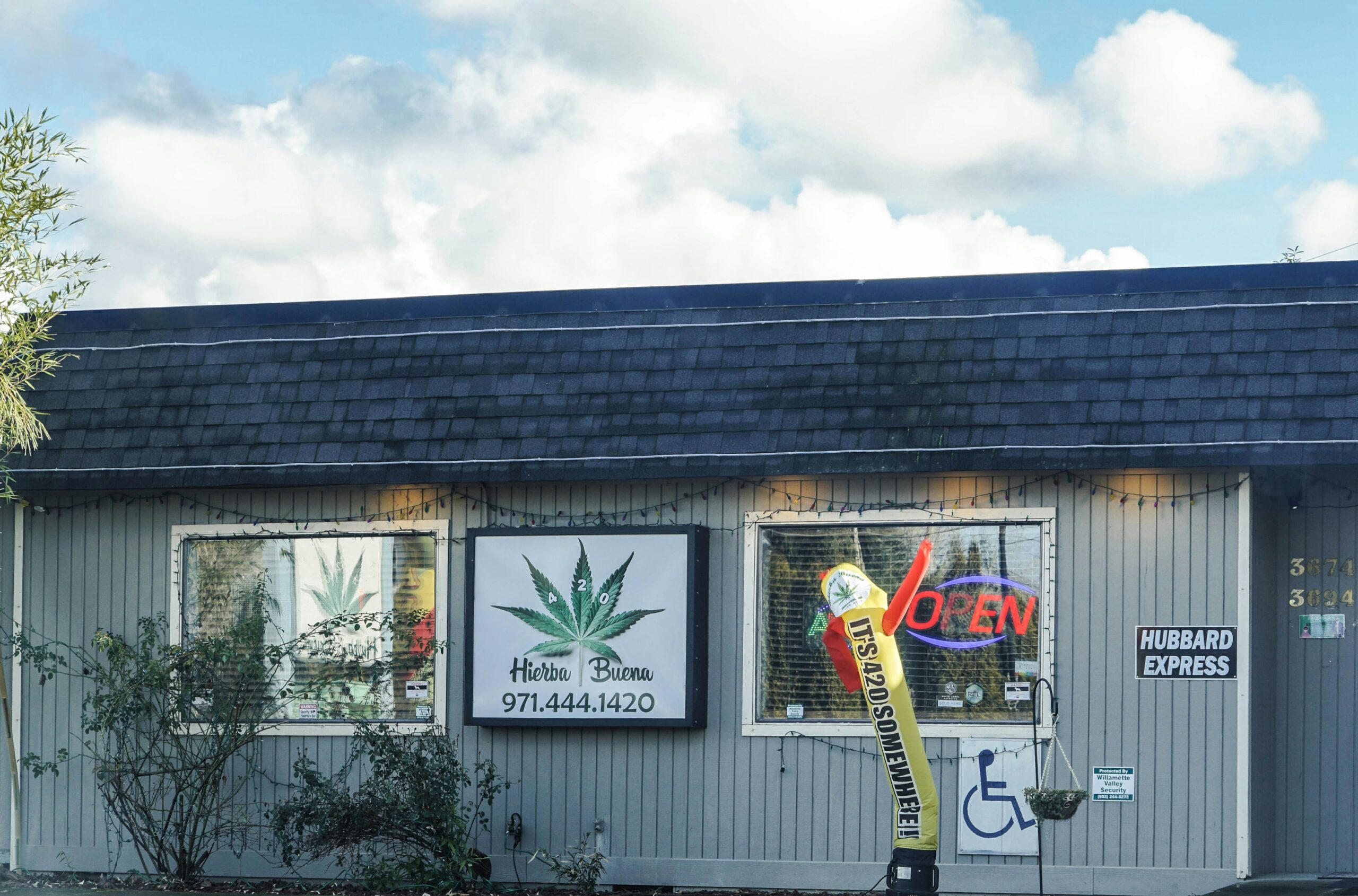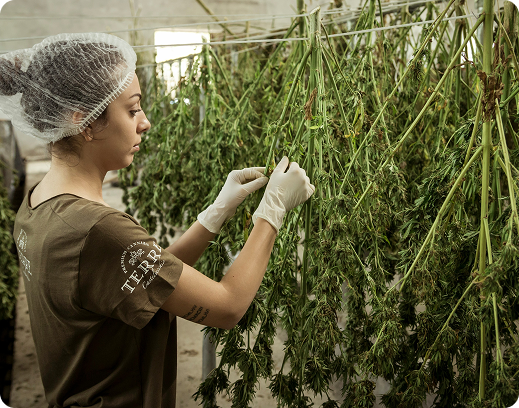How to Open a Dispensary in Nevada
Thinking about opening a dispensary in Nevada? It’s a competitive and highly regulated journey, but with the right roadmap, it’s within reach. This step-by-step guide on how to open a dispensary in Nevada walks aspiring dispensary owners through everything from forming your business and securing state licenses to zoning, staffing, and retail operations. Whether you’re just starting out or refining your plans, you’ll find actionable insights to help you build a compliant, successful business in the Silver State.

Article Summary
Opening a cannabis dispensary in Nevada means navigating a layered process—one that involves securing a state license, meeting strict local zoning and safety standards, and developing robust operational and compliance plans. From financial strategy to employee training, success depends on careful preparation and a clear understanding of regulatory expectations. With the right guidance, entrepreneurs and investors can break into one of the most dynamic cannabis markets in the U.S.
Why Start a Cannabis Business?
Opening a dispensary offers immense opportunities:
-
High Demand
With the growing acceptance of medical and recreational cannabis across multiple states and countries, dispensaries are seeing a surge in demand. Consumers are increasingly looking for high-quality products for health, wellness, and leisure, creating a constant need for reliable, accessible dispensaries.
-
Job Creation
The cannabis industry is projected to create thousands of jobs across various sectors, including cultivation, retail, logistics, and marketing. This growth not only provides employment opportunities but also contributes to local and national economies.
-
Strong ROI Potential
Entrepreneurs who navigate the complex regulatory landscape can make big returns on their investments. With proper business planning, branding, and compliance, dispensaries can tap into a rapidly growing market with high-profit margins.
Licensing Process & Main License Types
Securing a cannabis dispensary license in Nevada is a meticulous process overseen by the Nevada Cannabis Compliance Board (CCB). Whether you’re hoping to open a retail store or launch a consumption lounge, understanding the appropriate license types and what it takes to apply for marijuana businesses is essential.
Main License Types
If you’re aiming to run a dispensary, the main dispensary license to know is the Retail Marijuana Store License. This allows you to purchase cannabis products from licensed cultivators and producers, then sell them to adult-use cannabis consumers 21 and over, expanding your market reach. There’s also the Cannabis Consumption Lounge License, which lets you operate a space where adults can legally consume cannabis on-site—some businesses plan to blend retail with on-premise use.
Note: As of early 2025, Nevada is not accepting new applications for retail marijuana store licenses. The Nevada Cannabis Compliance Board (CCB) maintains a public mailing list to notify interested parties about open application periods and meetings.
Application Essentials
When the application period opens, you’ll need to prepare:
- Business Plan: Outline your mission, target market, products, operations, and financial projections.
- Premises Diagrams: Detailed floor plans showing security measures and customer flow.
- Local Approvals: Zoning approvals and permits from your local jurisdiction.
- Financial Documentation: Proof of funds, financial statements, and sources of capital.
- Cannabis Establishment Agent Card: Required for all involved staff, including background checks, valid for one year.
- Background Checks: Fingerprinting for all dispensary owners and key personnel; certain felony convictions disqualify applicants.
- Application Fee: A non-refundable $20,000 initial issuance fee for retail dispensary licenses.
For the full licensing breakdown—including timelines, fees, and detailed requirements—visit our dedicated Licensing page.

Operational Setup & Compliance Systems
Establishing a cannabis dispensary in Nevada requires meticulous attention to operational protocols and compliance systems. Ensuring adherence to state regulations not only safeguards your business but also fosters trust with customers and the community.

Technology & POS Integration
Security Measures
Security is paramount in the cannabis industry. Nevada’s regulations stipulate several security requirements for dispensaries:
- Controlled Access: Facilities must have a single, secure entrance to prevent unauthorized access.
- Surveillance Systems: Continuous video surveillance is required, covering all areas where cannabis is handled, including the exterior premises.
- Alarm Systems: An operational alarm system must be in place to detect unauthorized entry.
- Lighting: Adequate lighting must be maintained to ensure visibility for surveillance and safety.
Insurance Requirements
While Nevada does not mandate specific insurance policies for cannabis establishments, obtaining comprehensive coverage is highly recommended. Here are some of the insurance policies essential for cannabis businesses:
- General Liability Insurance: Protects against claims of bodily injury, property damage, and personal injury.
- Product Liability Insurance: Covers risks associated with the products sold, including potential health issues arising from product use.
- Workers’ Compensation Insurance: Required for businesses with employees, covering medical expenses and lost wages due to work-related injuries or illnesses.
- Property Insurance: Protects the physical assets of your business against risks like fire, theft, and natural disasters.
Staffing & Training
Staffing and training are essential pillars of a successful dispensary. It starts with hiring people who either bring cannabis industry experience or show a strong willingness to learn.
In Nevada, all employees must obtain a Registered Agent Card through the Cannabis Compliance Board (CCB), which includes a background check. Additionally, staff are required to complete up to 30 hours of OSHA training to ensure a safe working environment. Once onboarded, team members should go through thorough training that covers everything from product knowledge and customer service to compliance protocols and inventory management. Regular refreshers and ongoing education are just as important, especially as state regulations continue to evolve.
By investing in knowledgeable, well-trained staff, you’ll create a dispensary that not only delivers excellent customer experiences but also stays compliant and operationally sound.
Standard Operating Procedures (SOPs)
SOPs are your dispensary’s playbook. They help your team and your operations stay consistent, compliant, and efficient. SOPs also reduce risk and make onboarding easier. Here are the basic SOPs every dispensary in Nevada should include:
- Inventory Management: Clear processes for tracking and auditing stock.
- Security Measures: Step-by-step instructions for surveillance and access control.
- Employee Conduct: Expectations for hygiene, behavior, and customer interaction.
- Compliance Reporting: How and when to submit reports to regulators.
- Cash Handling: Secure procedures for transactions, reconciliations, and deposits.
- Customer Verification: Age and ID checks to ensure legal sales.
- Emergency Procedures: Clear plans for evacuations and incident response.

Store Design & Location
Picking the right spot can make or break your dispensary. In Nevada, you have to follow local zoning rules that usually limit dispensaries to commercial or industrial areas. Plus, there are strict rules about keeping at least 1,000 feet away from places like schools, churches, daycare centers, parks, and even other dispensaries. Talking with local zoning officials early on will help you avoid surprises.
But it’s not just about ticking regulatory boxes. Think about how easy it is for customers to find you, get inside, and park. Locations with good visibility, easy access, and plenty of parking can boost your foot traffic and sales.
Store Layout & Interior Design
Your dispensary’s design needs to strike a balance between looking good, working well, and staying compliant. When planning your layout, consider how customers will move through the space and how they’ll pay—whether at a counter, with a handheld device, or at a kiosk. You might want different paths for walk-in shoppers versus online order pickups. Product displays should be clear and inviting, while your branding should shine through the design.
Don’t forget the practical side: plan your entry and waiting areas, secure doorways and inventory storage (both on the sales floor and in locked vaults), staff workstations, break rooms, and bathrooms. Security and staff comfort are just as important as customer experience.
State-Specific Guidelines
Navigating Nevada’s cannabis industry means understanding the rules that are unique to the state—from how products are taxed to who gets prioritized in licensing. Staying on top of these details is key to staying compliant and competitive. Here are some of the things to keep in mind:
Tax Structures
Nevada imposes several taxes on cannabis sales:
- Wholesale Tax: A 15% excise tax on the first wholesale sale of cannabis products.
- Retail Excise Tax: A 10% tax on retail sales of adult-use cannabis.
- Sales Tax: Standard state and local sales taxes also apply, varying by location.
Medical cannabis sales to registered patients are exempt from the 10% retail excise tax.
Social Equity Programs
Nevada has initiated social equity programs aimed at promoting inclusivity in the cannabis industry. For instance, Assembly Bill 341 mandates that at least 10 of the first 20 licenses for independent cannabis consumption lounges be issued to social equity applicants. Qualifying applicants may also benefit from reduced administrative fees.
Partnering with AlphaRoot: Your Cannabis Insurance Ally
Opening a dispensary is no small feat—and keeping it protected is just as important. That’s where AlphaRoot comes in, expertly navigating the complexities posed by federal law . We specialize in cannabis insurance, offering tailored coverage that fits your business, whether you’re growing, manufacturing, or selling.
From general liability to crop and cyber insurance, we help you manage the real risks cannabis operators face every day. Our team brings deep industry knowledge, practical guidance, and a genuine commitment to your long-term success.
But we’re more than just an insurance provider. AlphaRoot is here to support your journey with practical insights and a sense of community. Our Resource Hub is full of helpful content on compliance and risk management, and our Roots to Risk podcast features candid conversations with cannabis leaders who’ve been through it all. When you work with us, you’re gaining more than coverage—you’re gaining a partner invested in your growth.
Want to see how we can support your journey? Visit alpharoot.com or reach out for a personalized consultation.
Looking Ahead in Nevada’s Cannabis Landscape
Nevada’s cannabis industry is on the edge of something big. While the rollout of consumption lounges hasn’t been without its challenges, the state’s tourism-driven economy and shifting public attitudes are opening the door to exciting new possibilities. Creative ideas like recreational cannabis-friendly spaces in casino resorts are gaining momentum, especially as nearly 70% of Americans now support designated areas for cannabis use in those venues.
For entrepreneurs, this next chapter is all about staying nimble. The businesses that thrive will be the ones that keep up with changing rules, prioritize great customer experiences, and stay connected to their communities. With the right partners and a clear vision, there’s real opportunity to build something bold in Nevada’s evolving cannabis space.

